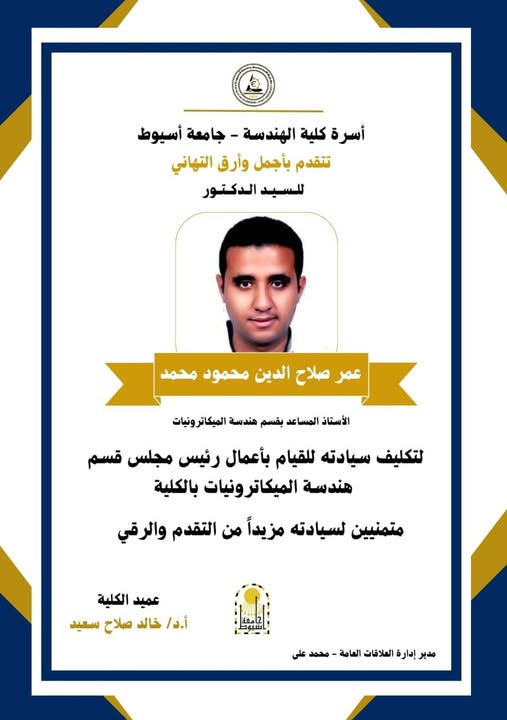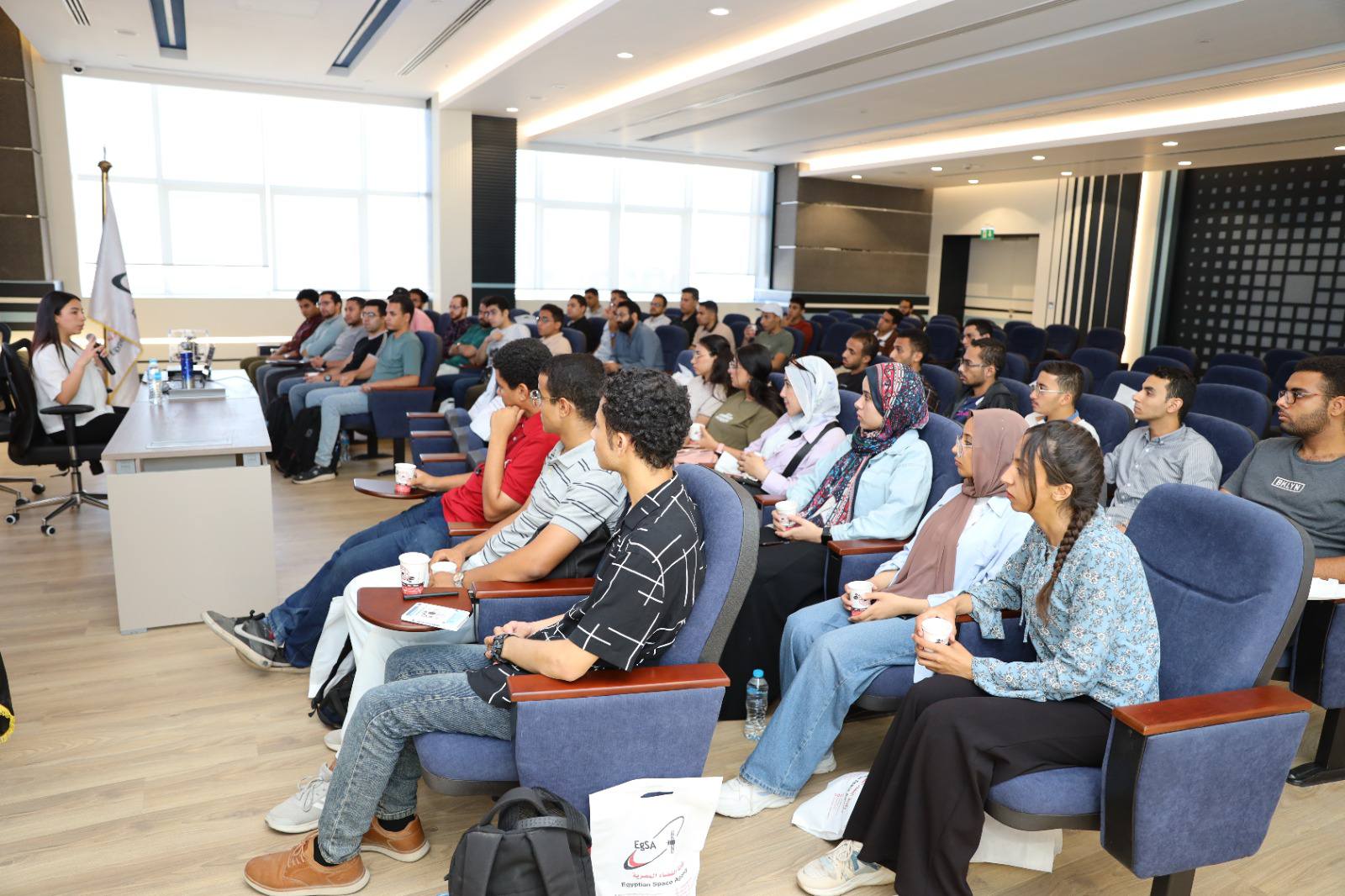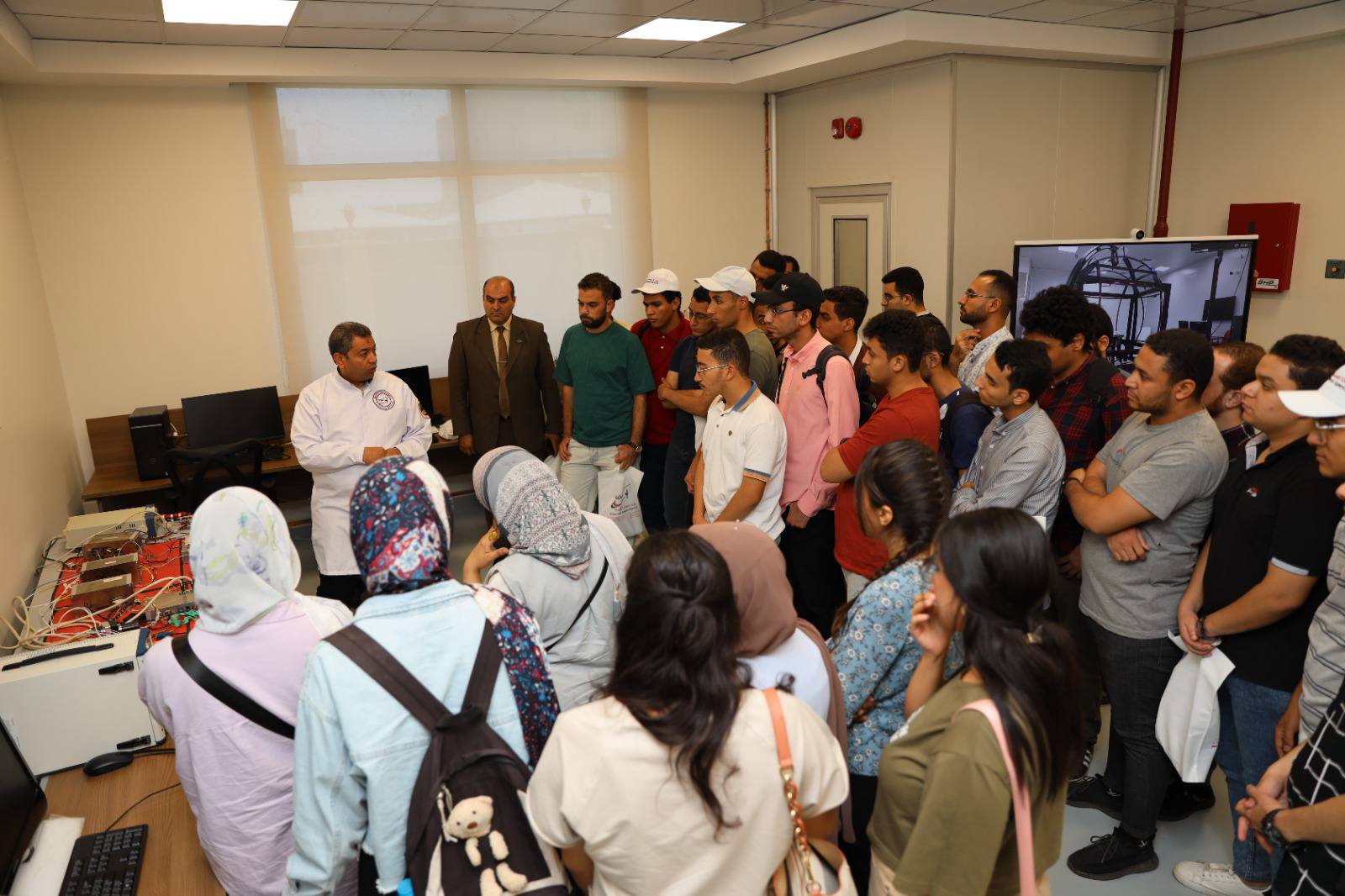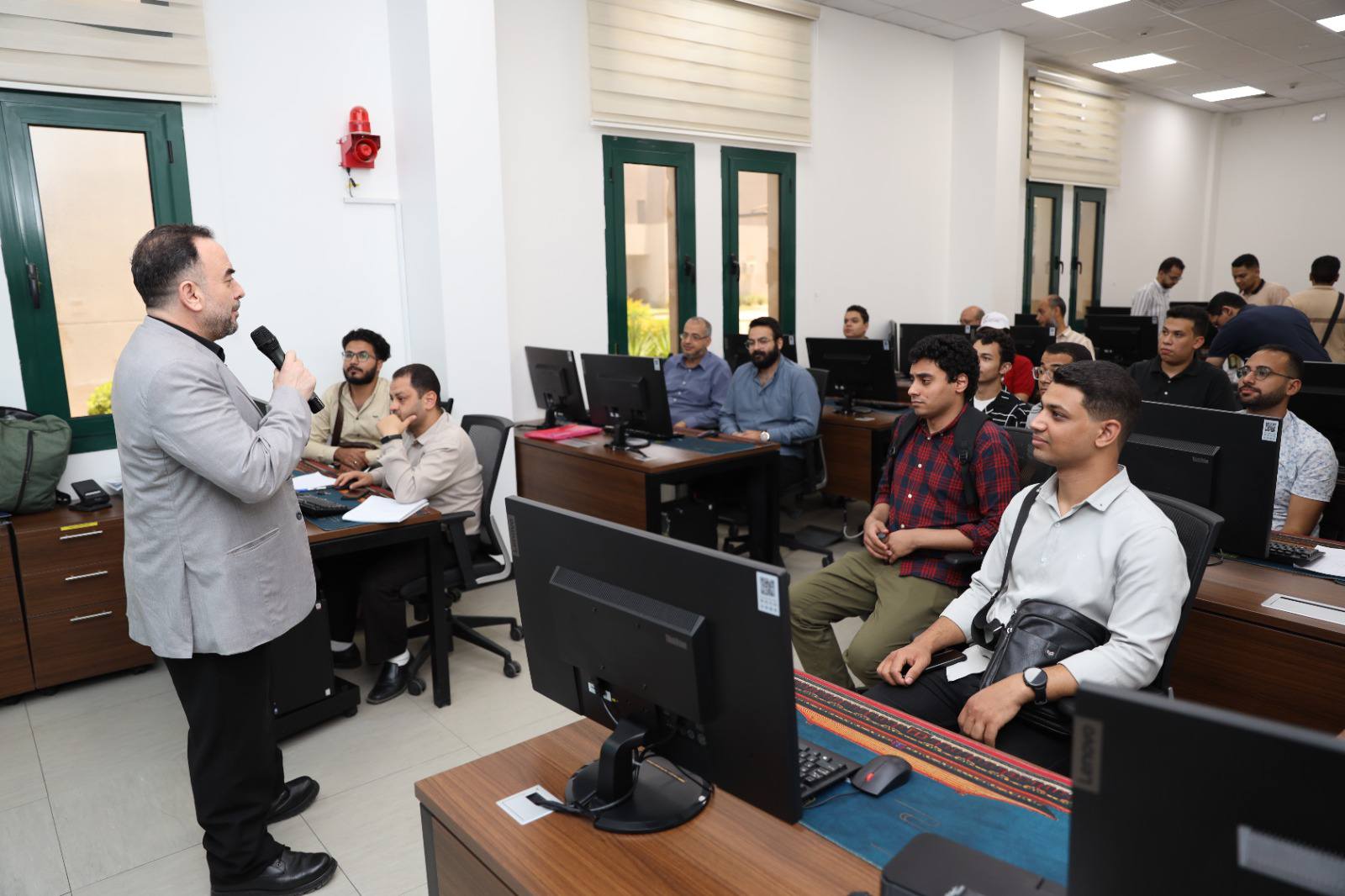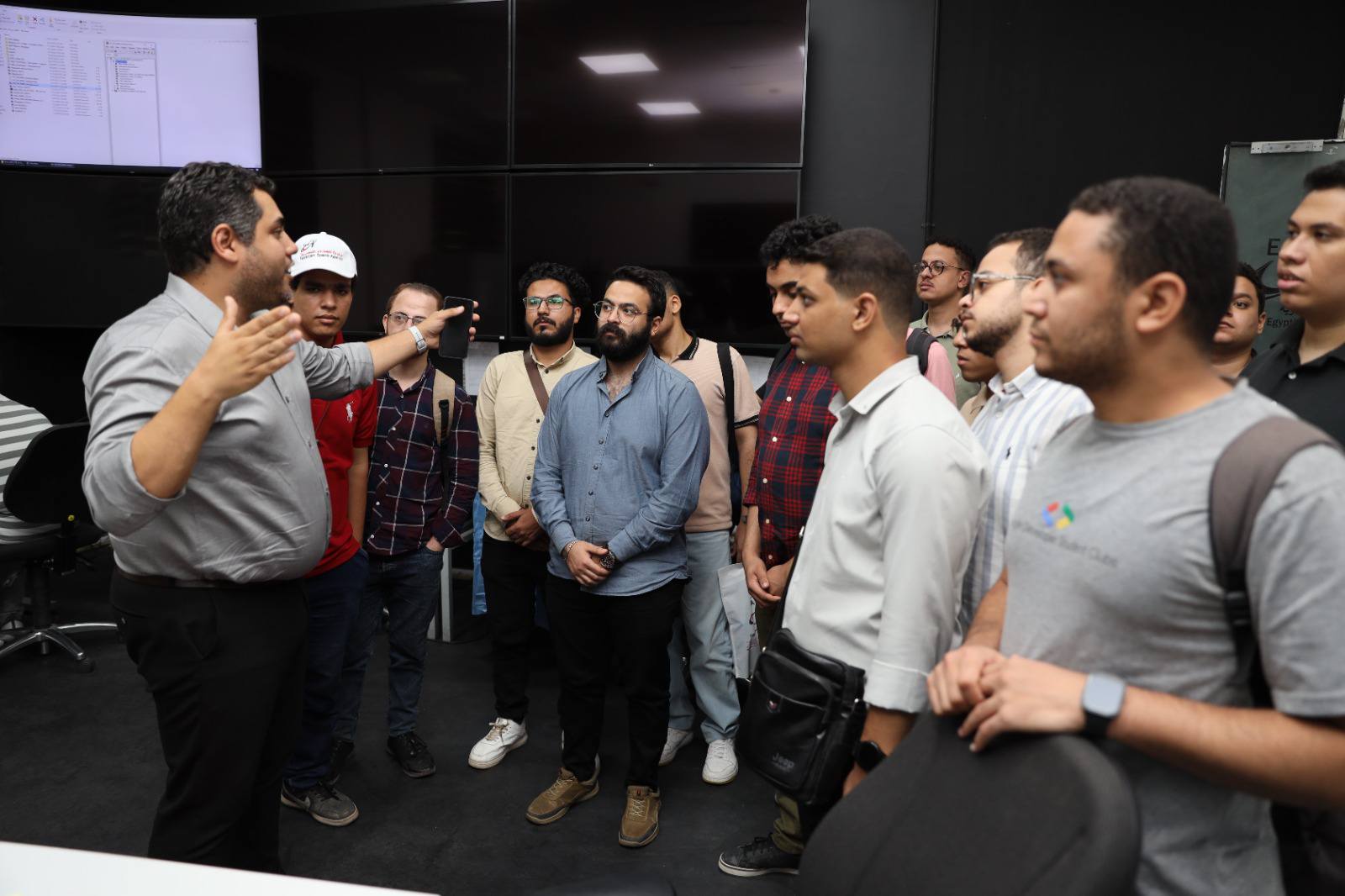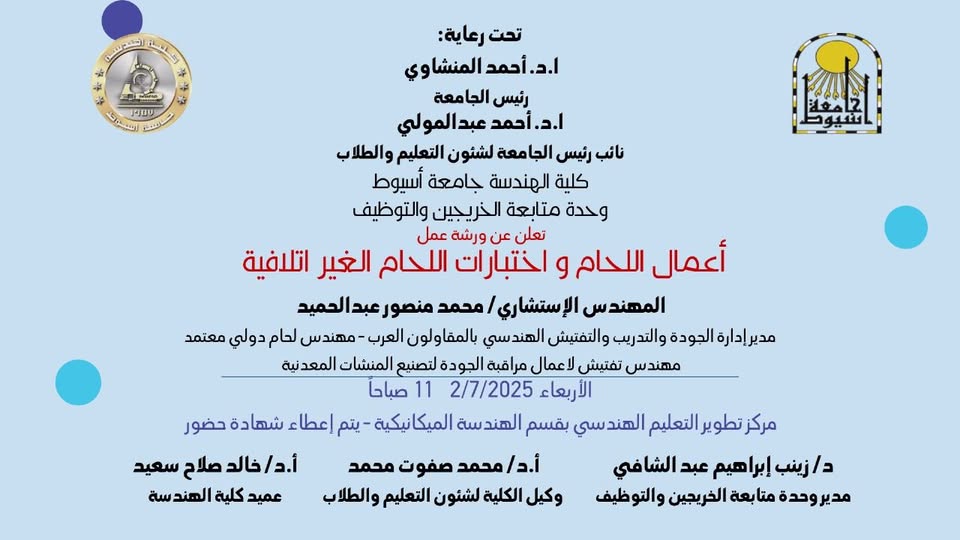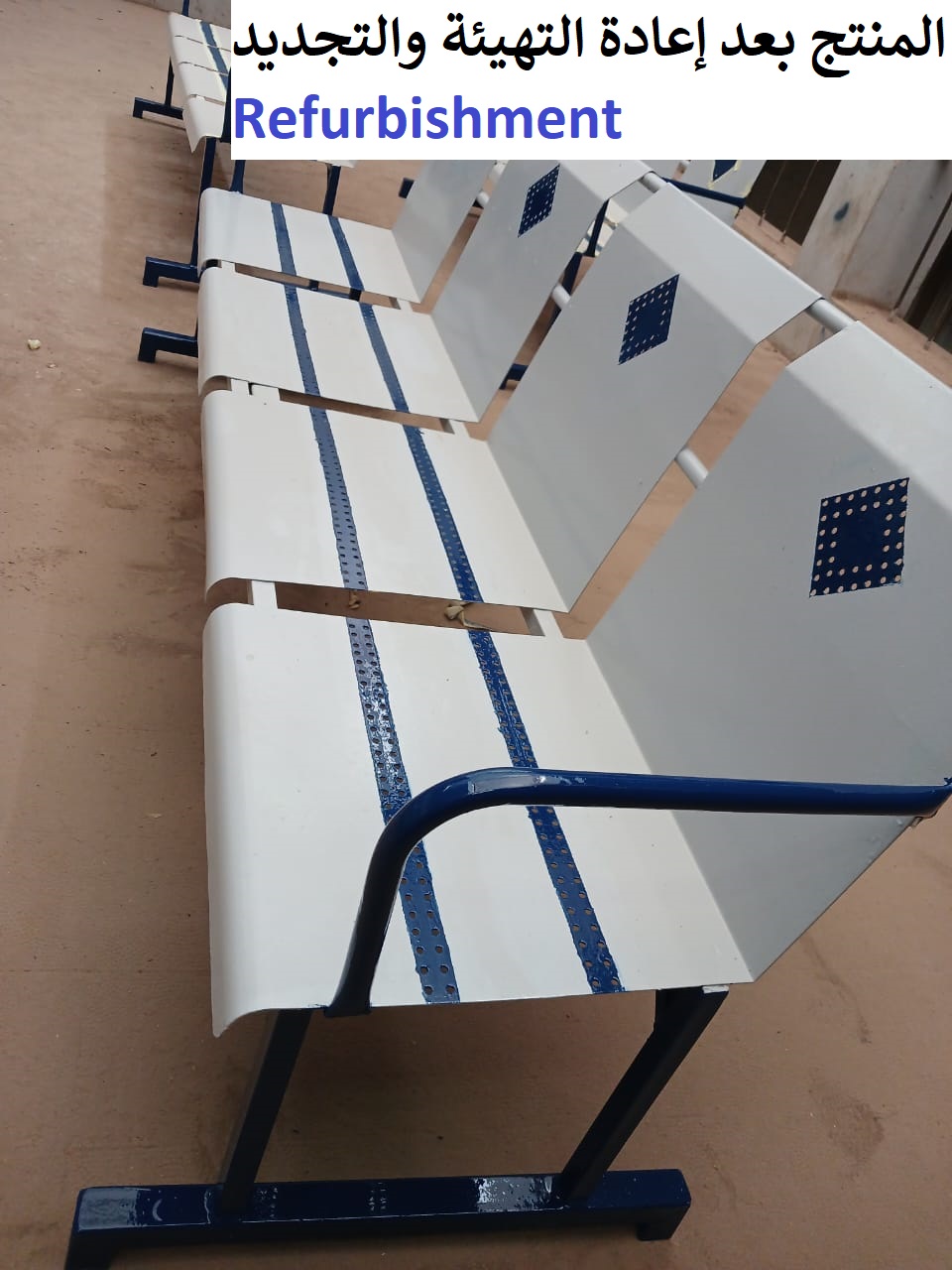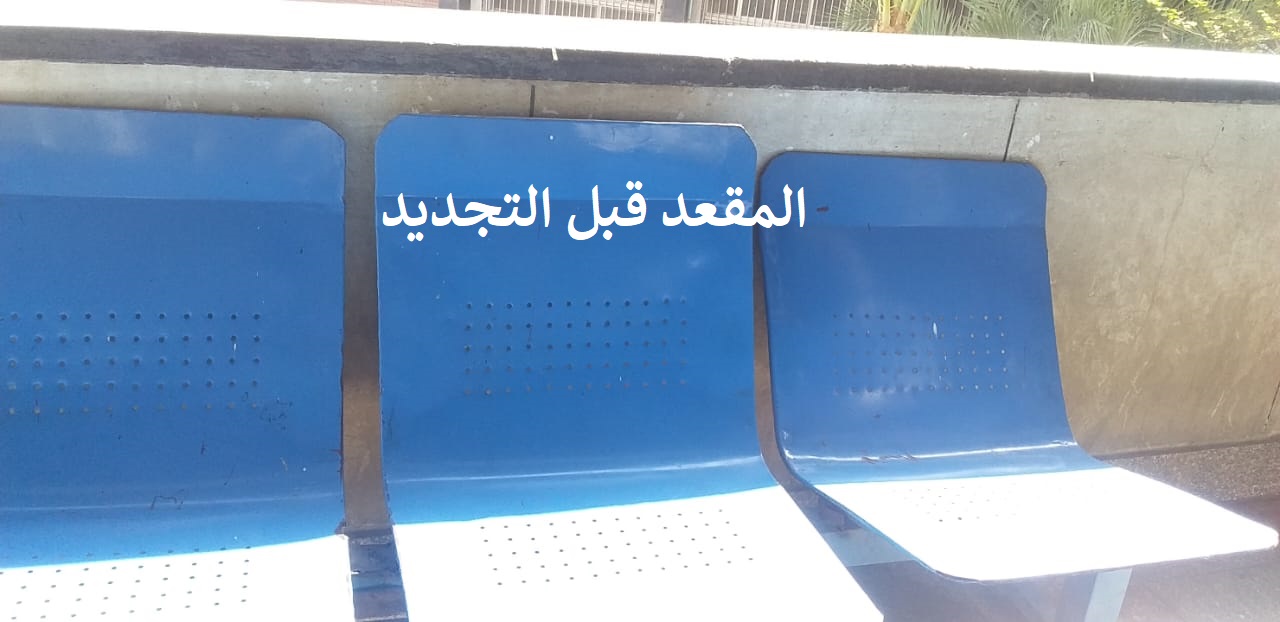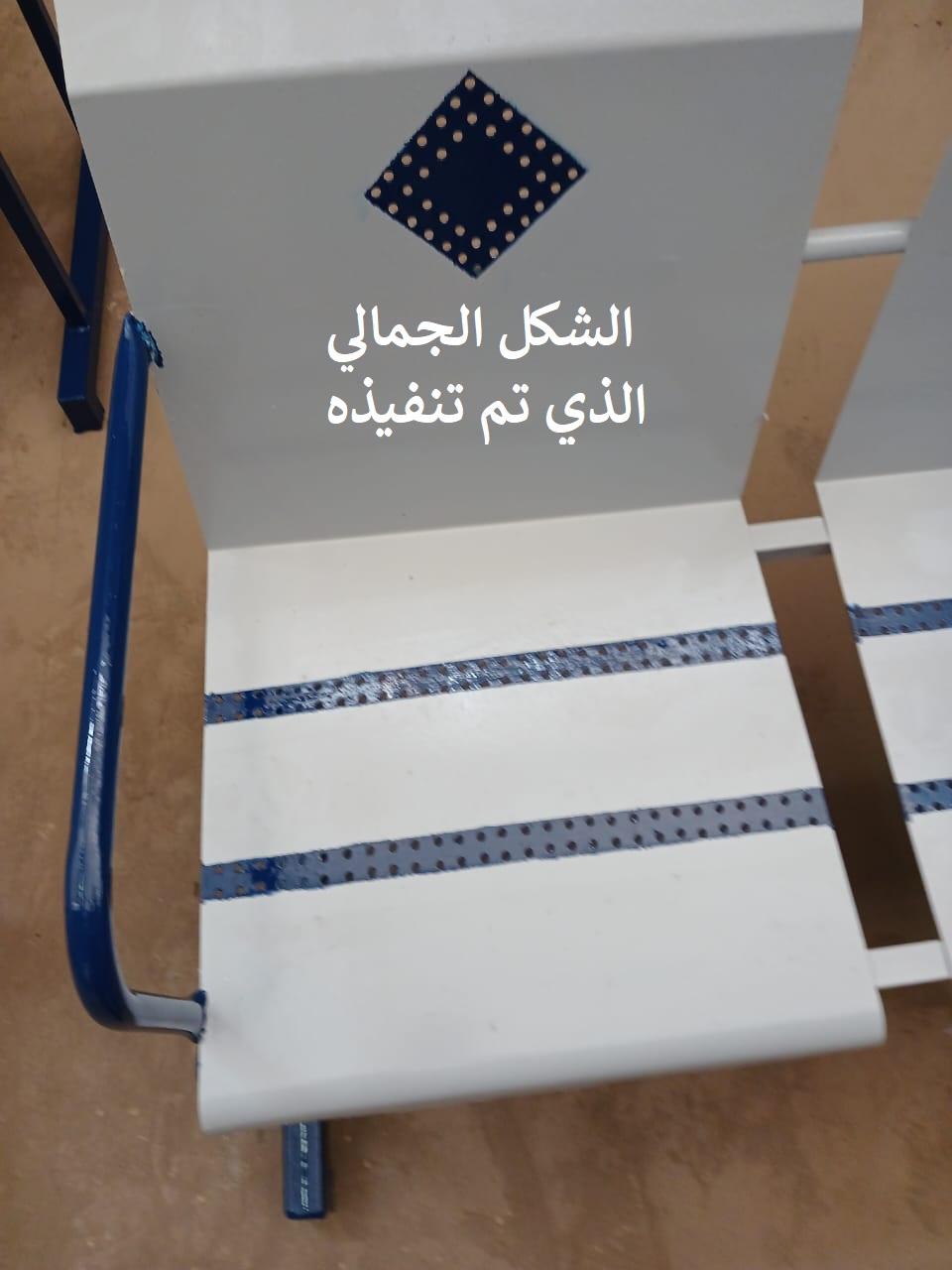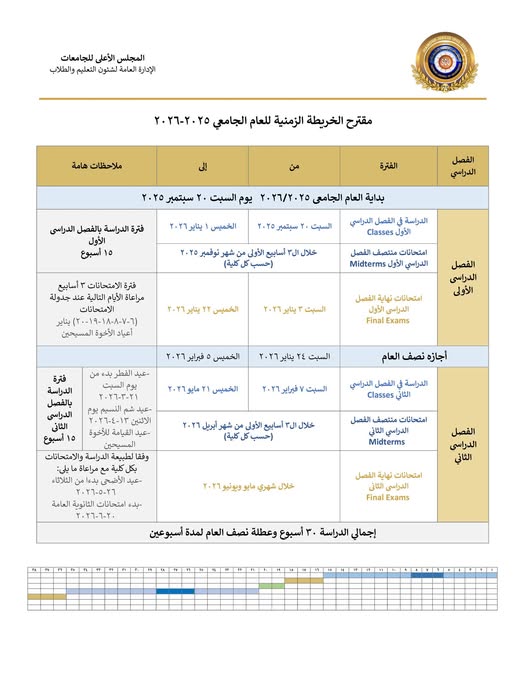
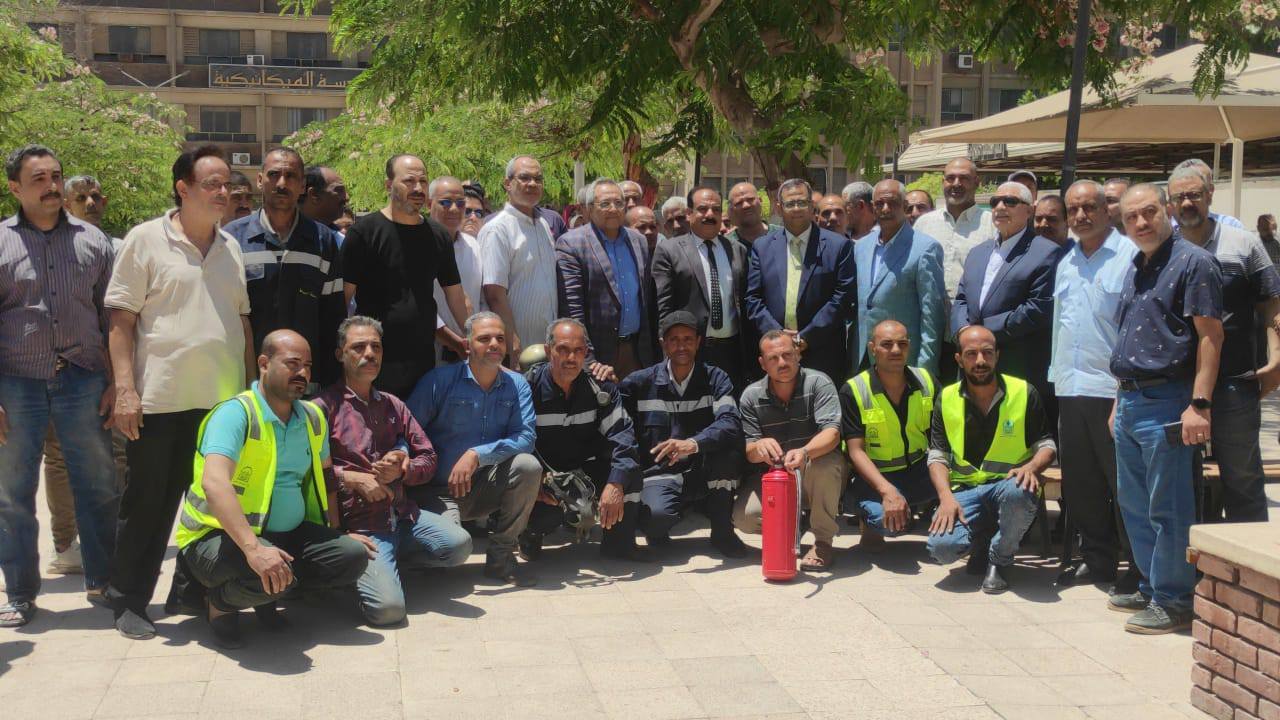
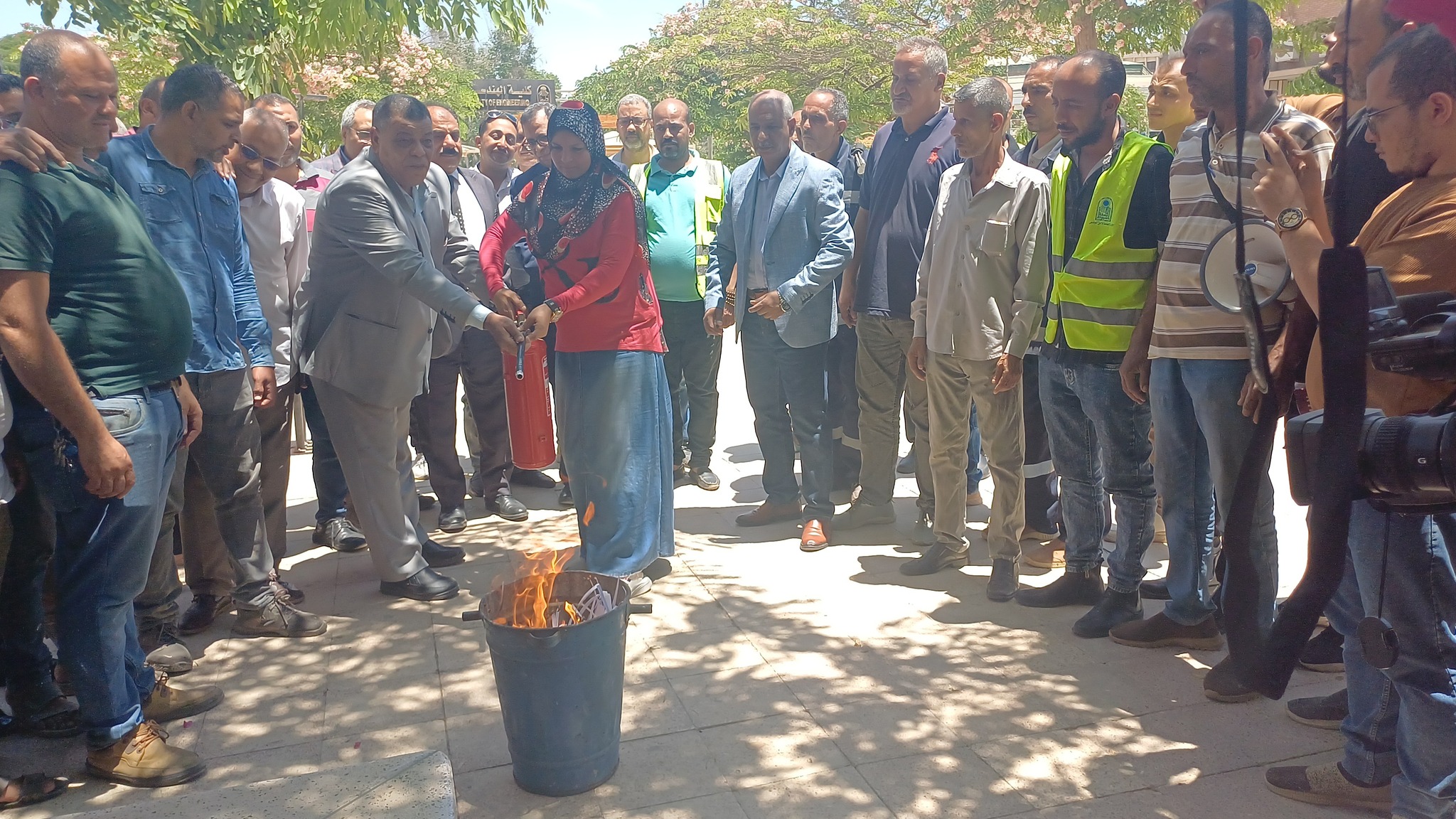
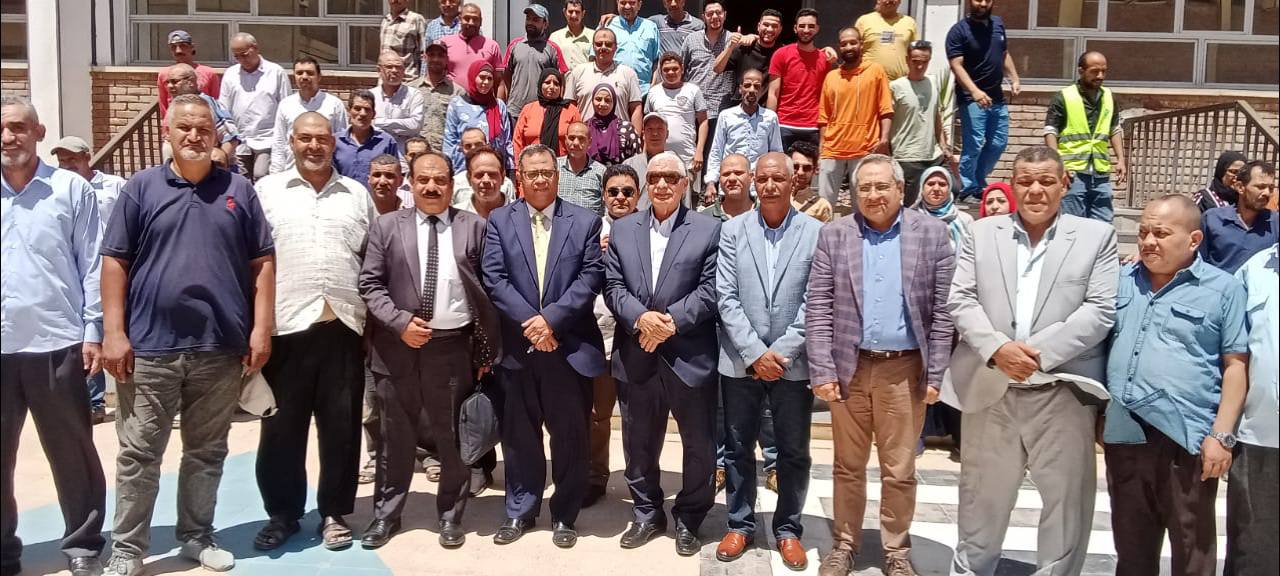
The Faculty of Engineering held an evacuation drill for the faculty's administrative building, an orientation lecture, and a firefighting equipment test.
On Wednesday, June 25, 2025, the Faculty of Engineering at Assiut University conducted an evacuation drill for the faculty's administrative building as a training exercise on building evacuation procedures in the event of a fire hazard. A rapid training session was also held on the sidelines of the evacuation drill on the use of an outdoor firefighting equipment.
The experiment was held under the auspices of Professor Dr. Ahmed El-Menshawy, President of the University, and Professor Dr. Mahmoud Abdel-Alim, Vice President for Community Service and Environmental Development, and under the supervision and attendance of Professor Dr. Khaled Salah, Dean of the Faculty, Professor Dr. Mohamed Safwat Abu Raya, Vice Dean for Education and Student Affairs and Acting Vice Dean for Community Service and Environmental Development, and Professor Raafat Bakr, Secretary-General of the Faculty.
The experiment was also supervised and implemented by Major General Abdel Rahman Serry, Advisor to the President of the University, Professor Moamen Mohamed Sayed, Director of the Security Department, Professor Mohamed Abdel-Aal, Director of the University Civil Defense, Professor Ali Omar, Director of Occupational Safety and Health, Professor Mohamed Mohie, Director of the Faculty Security Department, and a number of faculty security and university civil defense personnel.
A large number of employees from various sectors and facilities of the Faculty participated in the experiment. The implementation was carried out in cooperation with the University Security and Occupational Safety Department, hospitals, and various relevant authorities. The University Security Department, fire engines from the University Civil Protection Department, and ambulances from hospitals participated in the experiment.
During the orientation lecture, Professor Dr. Khaled Salah, Dean of the Faculty, pointed out that the training activities are part of a series of training courses aimed at spreading a culture of dealing with and avoiding risks to ensure the safety of individuals and facilities. This is achieved through practical application of how to take the optimal response and proper action in risk situations, thus preserving lives and facilities. He praised the Faculty of Engineering's facilities, laboratories, and green spaces, which require proper and comprehensive preservation and protection.
His Excellency also expressed his thanks and appreciation to the university administration, headed by Professor Dr. Ahmed El-Minshawy, President of Assiut University, and Professor Dr. Mahmoud Abdel-Alim, Vice President for Community Service and Environmental Development Affairs. He commended their commitment to ensuring the safety and security of all individuals and facilities on campus. He also urged them to continue to promote a culture of civil protection and to introduce firefighting mechanisms and proper procedures to avoid their causes and reduce their risks. He also noted the continued efforts and tireless work to train and qualify all employees across the university's various sectors to adhere to public safety and security procedures, and to enhance their expertise in this important field.
In the same context, Professor Dr. Mohamed Safwat Ali emphasized the importance of such training courses, which aim to spread the culture of civil defense and introduce mechanisms for preserving human resources and protecting facilities. He also thanked the university administration for providing continuous support at all levels, based on its full awareness of the importance of civil defense and its commitment to ensuring the safety of individuals and facilities from danger.
The Faculty of Engineering extends its sincere thanks to the University Security and Occupational Safety Department for providing the necessary support and technical supervision of the evacuation process.
